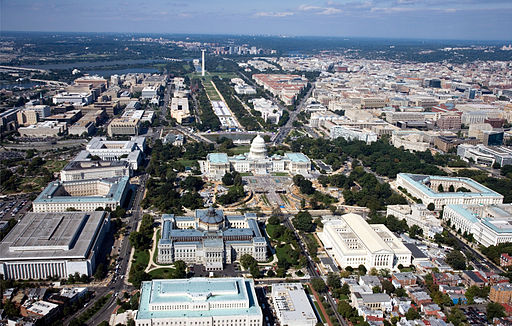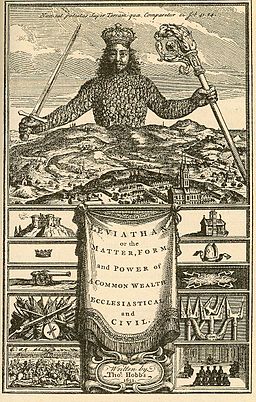American Government and Civic Engagement
Dr. Christopher N. Lawrence
Middle Georgia State University
POLS 1101: American Government
🔊 Disable Narration
What is Government?

A government is the set of institutions and processes that decide and implement decisions on behalf of a particular polity (a given territory or people).
Within the United States, there are many levels of government that exercise authority over communities (such as cities and counties), states, and territories, as well as our national government.
What is Politics?
There is no single definition of politics, but two have proven to be enduring:
- 20th century political scientist Harold Lasswell: Politics is about “who gets what, when, and how.”
- Another political scientist, David Easton: “the authoritative allocation of values for a society.”

What is Political Science?
Modern political scientists apply the methods of the social sciences to the systematic study of the theory and practice of politics.
- Political science's roots are interdisciplinary, encompassing philosophy, history, law, and economics.
- Other contemporary social sciences include economics, geography, psychology, and sociology.
The State of Nature
Enlightenment-era philosophers such as Thomas Hobbes, John Locke, and Jean-Jacques Rousseau had competing beliefs about society before (or without) government:
- Hobbes famously believed life for most people would be “nasty, brutish, and short” until humans banded together to create governments to protect them from others.
- Locke and Rousseau believed human nature was more peaceful and benevolent than Hobbes did, and that people did not give up their rights when they formed governments.

The Social Contract
Regardless of why humans chose to form governments, all of the social contract theorists believed that people within a society have agreed to accept certain duties and responsibilities in exchange for their government doing the same.
In our society, the primary obligation of the people is to obey the law. In return, our government protects our fundamental rights and liberties and provides public goods.
Capitalism and Socialism
Historically the development of democracy was linked with growth of capitalism:
Economic system in which property, goods, and services are freely traded without control by governments.
Both reflect spirit of individualism from the Enlightenment era: Locke, Adam Smith.
In the 19th century, the competing idea of socialism was developed by Karl Marx, Eduard Bernstein, and others. Socialists believe the government, not private individuals, should control the economy.
Political and Economic Systems

Capitalism and democracy still tend to go together, but:
Some non-democracies such as modern China, Nazi Germany (1933–45) have or had large private sectors (state capitalism).
Most modern democracies have mixed economies that incorporate some aspects of socialism—including the United States. Some are social democracies like Sweden.
Market Failure
In capitalist societies, government attempts to solve four major forms of market failure:
- Failure to provide public goods.
- Failure to account for externalities.
- Market power of monopolies.
- Lack of equity in outcomes.
Lack of Public Goods

Public goods are essential things needed by a society that would not be provided (enough) by a free market.
Not everything that the government does is necessarily a public good!
Public goods include:
- National defense.
- A legal system (courts, prisons, etc.).
- Clean air and water.
Although these things are important, without government taxes and regulations, it would be easy for people to be free riders: to avoid doing their part to ensure these public goods were available.
The Problem of Externalities
The actions of individuals (or groups, like businesses) may have consequences that affect others.
If individuals or groups don't pay the costs of these consequences for others (or get extra compensation for the benefits from them), they are called externalities.
- Example of negative externality: pollution.
- Example of positive externality: vaccination.
Market Power and Monopolies
Under free market competition, consumers normally benefit from competition between producers and businesses to lower prices.
However, if one company controls all or most of a market, they can force consumers to pay higher prices or provide lesser quality of service.
For example, compare cell phones (where competition between several major companies leads to lower prices) to home Internet service (where only 1 or 2 companies offer service to most people).
The Problem of Equity
A capitalist economic system may not lead to outcomes that are seen as “fair,” particularly for people who cannot afford things that are seen as basic necessities.
In these cases, government steps in to ensure access to these things to everyone. Examples include:
- Food and shelter.
- Elementary and secondary education.
- Basic health care.
Prices of other goods, like water and electricity, may be also be regulated to ensure everyone can afford them.
Forms of Government
Many governments today, and most throughout history, are based on an authoritarian system, where the ruler or ruling class has few constraints on their power but allow ordinary individuals some degree of personal freedom. Some monarchies today are examples of authoritarian states.
In the 20th century, technology made totalitarian rule possible; Nazi Germany and North Korea are good examples, where government seeks to control all aspects of citizens' lives.
On the other hand, in democracies, the people have a significant role in politics and government.
This role is often guaranteed through constitutional government, a system that places limitations on the powers of government and politicians.
Direct vs. Representative Democracy
-
At the time of the American revolution, many leaders were deeply skeptical of unchecked democracy, which they believed would lead to “King Numbers” and tyranny of the majority.
Even today, America relies mostly on representative democracy: citizens choose leaders to govern on their behalf between elections.
Direct democracy, including the referendum and initiative, tends to be used more frequently at the state and local level, but not at the national level.
Elitism vs. Pluralism
Even though the United States is a representative democracy, some people have more influence than others.
Elitist theory argues that a relatively small share of the population not only controls the bulk of America's wealth, but also holds virtually all of the political power as well.
On the other hand, pluralists believe that while America does have elites, they do not control the government. Instead, power is distributed among thousands of organized interest groups of citizens which compete with each other for influence.
Declining Civic Engagement
Some political scientists believe Americans have become less engaged in society than in the past.
This may lead to a loss of social capital which may discourage people from being involved in government and politics, leading to lower political efficacy.
Our system relies on people who are willing and able to participate to solve problems in our society.
Pathways to Engagement

There are numerous ways for people to involve themselves in politics:
- Voting, particularly in state and local elections with lower turnout.
- Attending political rallies.
- Donating money to, volunteering for political campaigns.
- Signing petitions.
More radical forms of participation include direct action such as protests, boycotts, and civil disobedience.
Youth Engagement
Young people are less likely than older Americans to engage in various forms of political activity, particularly traditional political organizations.
Many younger people may not feel connected to either of the major political parties and think supporting minor parties is pointless.
Others may think parties don't care about issues important to them, or may think parties are out of step with their views on the issues.
College students may also face greater challenges registering to vote and casting a ballot.
Copyright and License
The text and narration of these slides are an original, creative work, Copyright © 2000–25 Christopher N. Lawrence. You may freely use, modify, and redistribute this slideshow under the terms of the Creative Commons Attribution-Share Alike 4.0 International license. To view a copy of this license, visit http://creativecommons.org/licenses/by-sa/4.0/ or send a letter to Creative Commons, 444 Castro Street, Suite 900, Mountain View, California, 94041, USA.
Other elements of these slides are either in the public domain (either originally or due to lapse in copyright), are U.S. government works not subject to copyright, or were licensed under the Creative Commons Attribution-Share Alike license (or a less restrictive license, the Creative Commons Attribution license) by their original creator.
Works Consulted
The following sources were consulted or used in the production of one or more of these slideshows, in addition to various primary source materials generally cited in-place or otherwise obvious from context throughout; previous editions of these works may have also been used. Any errors or omissions remain the sole responsibility of the author.
- Barbour, Christine and Gerald C. Wright. 2012. Keeping the Republic: Power and Citizenship in American Politics, Brief 4th edition. Washington: CQ Press.
- Coleman, John J., Kenneth M. Goldstein, and William G. Howell. 2012. Cause and Consequence in American Politics. New York: Longman Pearson.
- Fiorina, Morris P., Paul E. Peterson, Bertram D. Johnson, and William G. Mayer. 2011. America's New Democracy, 6th edition. New York: Longman Pearson.
- Ginsberg, Benjamin, et al. 2015. We The People, 10th essentials edition. New York: W.W. Norton.
- Krutz, Glen, et al. 2025. American Government, 4th edition. Houston: OpenStax College.
- Lenz, Timothy O. and Mirya Holman. 2013. American Government. Gainesville, Fla.: University Press of Florida.
- O'Connor, Karen, Larry J. Sabato, and Alixandra B. Yanus. 2013. American Government: Roots and Reform, 12th edition. New York: Pearson.
- Sidlow, Edward I. and Beth Henschen. 2013. GOVT, 4th edition. New York: Cengage Learning.
- The American National Election Studies.
- Various Wikimedia projects, including the Wikimedia Commons, Wikipedia, and Wikisource.